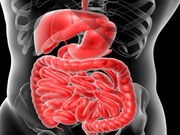

Long-term use of cholesterol-lowering statins does not appear to reduce the risk of colon cancer, but a person’s cholesterol levels might affect risk, a new study suggests.
Both statins and cholesterol levels have been linked with lower colon cancer risk, but pinpointing which one is actually responsible has been difficult, the University of Pennsylvania researchers explained.
So, they compared statin use and cholesterol levels in more than 22,000 British patients with colon cancer and more than 86,500 without the disease.
The results confirmed findings from previous studies that showed a lower risk of colon cancer in people who take statins. But the risk was not significantly different between people who kept taking statins and those who stopped taking the drugs.
Instead, the higher the cholesterol level, the lower the colon cancer risk for patients, regardless of statin use, the study found.
The researchers also discovered that an unexplained drop in cholesterol levels one year before a cancer diagnosis was linked to an increased risk of cancer in both statin users and nonusers.
But the study did not prove that lower cholesterol levels caused colon cancer risk to increase, it only showed an association between the two.
The findings, published online April 26 in the journal PLoS Medicine, suggest that cholesterol levels, and not statins, may influence colon cancer risk.
“There appears to be an artificially protective effect of statins,” lead study author Dr. Ronac Mamtani said in a university news release. He is an assistant professor of hematology/oncology at the Perelman School of Medicine at the University of Pennsylvania, in Philadelphia.
“Although the risk of colorectal cancer was lower in statin users versus nonusers, when we compared those who continued statin therapy versus those who discontinued the therapy, such that each group shared the same indication for statin therapy, there was no difference in risk,” Mamtani said.
The findings suggest that cholesterol levels could help diagnose colon cancer earlier, according to the researchers.
“Together, these data demonstrate a complex association between statins, cholesterol and colorectal cancer,” Mamtani said. “While unexplained decreases in blood total cholesterol should alert physicians to consider colon cancer as one potential explanation, future studies are needed to determine the utility of blood cholesterol as a marker for early detection of colon cancer.”
More information
The American Cancer Society has more about colon/rectum cancer.
Source: HealthDay
Copyright © 2025 HealthDay. All rights reserved.

Leave a Reply